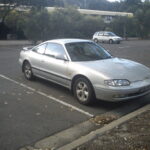Is BMW E38 Reliable? (What to Expect?)
The BMW E38 is a favorite luxury sedan first released in 1994 and offered until 2001. Since then, it has gained many fans who love its sleek design and powerful engine. But is the BMW E38 reliable? This blog post will look at what makes the vehicle reliable and what doesn’t. I will also discuss common problems that owners experience and offer advice on fixing them.
Is BMW E38 Reliable?
The BMW E38 is a very reliable car. It is known for its sturdy build, quality, and powerful V8 or V12 engine. Many owners report that their vehicles have never given them any problems whatsoever.
However, there are a few things that you should be aware of before purchasing this vehicle. First of all, the BMW E38 is not the cheapest car to maintain. Therefore, it is essential to have a reasonable budget for parts and labor before buying this car.
Secondly, considering its age, the BMW E38 is not the most accessible car to repair unless you have experience. Many owners recommend taking it to a professional mechanic if you are not familiar with working on cars. Overall, the BMW E38 is a very reliable vehicle. If you are looking for a luxurious and powerful car, the BMW E38 is worth considering.
Also read: Is BMW E92 Reliable? (All You Need to Know)
What are the Most Common Problems with the BMW E38?
Even though the BMW E38 is a reliable car, there are still a few common problems that owners experience. Preventative maintenance can help alleviate some of these common issues, but parts eventually wear out and need to be replaced.
The most common problems with the BMW E38 are:
- Cracked engine mounts – Many older cars suffer from this, and the engine vibrating over time will wear out the mounts. They should last at least ten years before you even need to think about replacing them. It will cost about $600 to do the job.
- Defective ignition coils – The ignition coils in the BMW E38 are known to fail after about 60,000 miles. Coil failure is a common problem with many BMW models. Ignition coils provide the spark that is necessary to start the engine. If they fail, your vehicle will not be able to start. Replacing them is not too difficult and will cost about $200.
- Water pump failure – The water pump is responsible for circulating the coolant through the engine. If it fails, the engine will overheat and may be damaged. Water pumps usually last about 100,000 miles before they fail. Replacing a water pump is not a difficult task, but it can be expensive. It will cost around $1,600 to have a mechanic do it for you.
- Steering Wheel Shimmies (suspension) – It is caused by the suspension wearing out over time. The best way to fix it is to have a professional mechanic replace the worn-out parts, as it’s a time-consuming job. It could be a simple fix, but it could be as expensive as $3,000.
- PCV Valve Failure – The Positive Crankcase Ventilation valve is responsible for venting the crankcase gases back into the intake manifold. If it fails, the engine will smoke and may lose power. Replacing a PCV valve is not a difficult task and cheap to fix. It will cost around $100 to have a mechanic do it for you, or you could do it yourself.
Also read: Is BMW Z3 Reliable? (What to Expect?)
Which BMW E38 Years are the Best and Worst?
The best years for the BMW E38 are 1998 and 1999. These two years had the fewest number of recalls and complaints. The worst year was 2000 when most of the problems with the water pump and ignition coils began to surface. If you are looking to purchase a BMW E38, we recommend avoiding 2000 models and aiming for 1998 or 1999 models instead.
The Good:
1998 E38 – Sturdy build quality, powerful V12 engine, good value for money. High safety ratings and overall ratings for quality.
1999 E38 – Sturdy build quality, powerful V12 engine, and the fewest number of recalls and complaints. High safety ratings and outstanding reliability.
The Bad:
2000 E38 – Common problems with water pump and ignition coils, not as reliable as other years. Lower safety ratings than other years.
Also read: Is BMW E92 Reliable? (All You Need to Know)
Which BMW E38 Engines are the Most and Least Reliable?
The most reliable engine is the V12 engine. It is powerful and has an excellent track record for being durable; it’s a relatively simple engine. The V12 models include the M60, M62, M52, and M73 engines.
The least reliable engine is the V8 engine. While it is still a good engine, it is obviously not as powerful as the V12; it gets great gas mileage at around 33MPG. The V8 models would include the M50, M52, and M54 engines.
Trending Video: How to Easily Bring Back to Life any Old Car Battery and Save Tons of Money (click to watch)
Is BMW E38 Safe?
The BMW E38 is a safe car. It has high safety ratings from many organizations. It also has a good reputation for being a reliable car. It has many standard safety features such as anti-lock brakes, all-season traction control, front, side, overhead airbags, and pretensioners that automatically tighten to put occupants in the optimal position during a collision.
The E38 also has double-locked doors, coded driveway protection, and extra-thick window glass. The bottom line is that the BMW E38 is safe and reliable. While it does have a few common problems, they are all relatively easy and inexpensive to fix. So if you are looking for a safe and dependable car, the BMW E38 is a great option.
Also read: Is BMW E90 Reliable? (Things You Need to Know)
How Much Does BMW E38 Cost to Maintain?
Maintaining a BMW E38 is not cheap; the cost of parts and labor can add up quickly. In addition, since this vehicle is larger and has a more powerful engine, fuel costs are incredibly high. Below is a table describing a 5-year cost to own an E38; as the car ages, maintenance costs rise.
| Year 1 | Year 2 | Year 3 | Year 4 | Year 5 | Total | |
| Insurance | $1,603 | $1,651 | $1,701 | $1,752 | $1,804 | $8,511 |
| Maintenance | $1,875 | $427 | $4,140 | $737 | $4,116 | $11,295 |
| Repairs | $1,770 | $1,892 | $2,040 | $2,197 | $2,366 | $10,265 |
| Financing | $1,009 | $798 | $581 | $358 | $127 | $2,873 |
| Taxes | $1,688 | $46 | $46 | $46 | $46 | $1,872 |
| Depreciation | $9,114 | $5,591 | $4,777 | $4,070 | $3,475 | $27,027 |
| Fuel | $2,927 | $3,015 | $3,105 | $3,199 | $3,295 | $15,541 |
| True Cost | $19,986 | $13,420 | $16,390 | $12,359 | $15,229 | $77,384 |
The most common repairs that will need to be made are:
- Replacing the water pump – $1,000 to $1,600
- Replacing the ignition coils – $200 to $400
- Replacing the PCV valve – $100
- Replacing the spark plugs – $50 to $150
The best way to fix it is to have a professional mechanic replace the worn-out parts. Professional work is the most expensive option, but it is also convenient to ensure. You can also choose to do the repairs yourself, which will save you money but may take some time and effort.
What is A Good Mileage for the BMW E38?
The average mileage for the BMW E38 is around 200,000 miles. However, some drivers have reported driving their car for over 300,000 miles with no significant problems. However, time and weather seem to be the primary nemesis for the E38.
Keep the car washed during snowy seasons to protect the paint and ensure the underbody lasts as long as the car itself. Unfortunately, it’s not uncommon for the engine to last longer than the rest of the vehicle. However, if you keep up with the maintenance, you can expect it to last for many years.
What Parts Should You Replace And After How Many Miles?
As I mentioned, the BMW E38 was manufactured from 1995 to 2001, so if you own one or are currently searching for one, you’ll likely have to replace several parts before you take it on the road.
Below is a list of parts that should be replaced or services you should do after a certain number of miles. These are only suggestions, and you should consult your owner’s manual or a professional mechanic for specific advice on what parts to replace and when.
- Transmission Fluid Flush: every 65,000 to 100,000 miles
- Timing Belt Replacement: 105,000 to 125,000 miles
- Spark Plugs: 60,000 to 100,000 miles
- Mass Air Flow Sensor: 100,000 miles
- Valve Cover Gasket: 60,000 to 90,000 miles
The BMW E38 is a great car. It’s safe, reliable and can last for many years if you take care of it. So keep up with the maintenance and replace parts when necessary, and you’ll be able to enjoy your car for a long time.
Also read: BMW E46 Maintenance Costs (Calculation)
Are BMW E38 Parts Widely Available?
Yes, BMW E38 parts are widely available both online and offline. You can find most parts at your local auto store, but for some specialty parts, you may have to order them online. Many aftermarket companies also make replacement parts for the E38, so you should be able to find what you need without too much trouble.
You can find replacement parts at websites like eBay, Amazon, ecstuning.com, and PartsGeek. You can even purchase replacement parts from your local BMW dealership, but you could pay a significant markup. Just make sure that you order from a reputable company to ensure that you’re getting quality parts.
How to Buy a Reliable BMW E38?
The best way to buy a reliable BMW E38 is to research the model thoroughly; there should be many sources that you can reference because of the car’s age. Also, look for a car with regular tune-ups and oil changes, and make sure that all the parts are in good condition.
If possible, find an owner who kept maintenance receipts documenting the work done to the car during their ownership. One of the best ways to determine the status of a potential purchase is to take it to a trusted garage. After a multi-point inspection, they should be able to tell you the car’s condition.
If you’re not able to find a car in peak condition, you’ll have to do some of the maintenance yourself. First, ensure that you replace all the filters and fluids at the recommended intervals and take your car in for regular tune-ups.
No matter what route you choose, it’s essential to be prepared to work on the car if you want it to be reliable. However, if you’re willing to put in the time and effort, then you can find a great BMW E38.
Conclusion
The BMW E38 is a popular car known for its reliability. However, like all cars, it will eventually need some parts replaced, mainly due to the model’s age. Also, like most BMW vehicles, the E38 is subject to common issues like oil leaks or suspension issues. Nevertheless, with regular maintenance and care, you can extend the life of your vehicle and enjoy it for many years to come.
References
E38 BMW 7 Series Buying Guide: Reliable Budget Bond Luxury, The BMW E38 7 Series – The Time is Now | Car & Classic Magazine, Video: Working on a 20-year old E38 BMW S7 Series V8 is not easy, Most Common Issues with the BMW E38 • eEuroparts.com Blog, Timm’s BMW E38 Common Problems, How Often To Replace Engine Mounts? – McNally Institute, How to know when to replace motor mounts by Autoscope, BMW 740iL Engine Mount Replacement Cost Estimate, BMW 740i Ignition Coil Replacement Cost Estimate., BMW 740iL Water Pump Replacement Cost Estimate., BMW 740i Suspension Shock or Strut Assembly Replacement Cost Estimate, PCV Valve Replacement Cost – RepairPal Estimate, The BMW E38 is the only used 7 series worth buying – DriverSociety.com, Used 1998 BMW 7 Series Consumer Reviews – 85 Car Reviews | Edmunds, E38 BMW. What’s the best engine to go for? – Page 1 – BMW General – PistonHeads UK, 2001 BMW 740 Crash Test Ratings, 1997 BMW 7 Series Review & Ratings | Edmunds, 2016 BMW 7 Series: True Cost to Own | Edmunds, How Many Miles Does A BMW Last? [Breakdown By Model],






